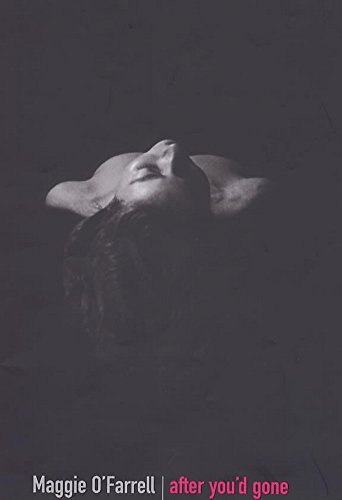A distraught young woman boards a train at King's Cross to return to her family in Scotland. Six hours later, she catches sight of something so terrible in a mirror at Waverley Station that she gets on the next train back to London, where a traffic accident leaves her in a coma.
AFTER YOU'D GONE follows Alice's mental journey into how she came to be this way, as she twists together threads of memory in a plot that grips from the outset. It is a love story which is also a story of absence - we discover that Alice's lover, John, has been dead for a year by the time the book starts - and of parental legacies: how actions and choices can reverberate in following generations. Slowly, we are drawn closer to a dark secret at the family's heart, as Alice begins to wonder whether she will ever be whole again, or even survive.
Like a pointillist painting, Maggie O'Farrell's fine debut
After You'd Gone is, from one perspective, formless--short vignettes, told from multiple points of view and in multiple voices, that are somewhat puzzling on their own and apparently have no connection to each other. Ultimately, however, these elements merge into a coherent and moving portrait of a young woman's journey toward a life-threatening crisis.
In London, one cold day in late autumn, Alice Raikes impulsively boards a train home to Scotland. Shortly after joining her two sisters in the Edinburgh train station, she sees something "odd and unexpected and sickening" in the station's restroom that causes her to immediately flee back to London. Later that evening, while walking to the grocers, Alice broods over what she has seen, then abruptly steps into oncoming traffic. As she lies comatose in her hospital bed, a swirl of voices and images gradually reveals her past--her parents, especially her mother, Ann; her beloved grandmother, Elspeth; her two sisters, so unlike her, both physically and temperamentally; and John Friedman, whom she loved and lost--and hints at her precarious future.
The unnamed spectacle of the opening washroom scene resurfaces in Alice's semiconscious haze and its eventual elucidation comes as less of a shock than a confirmation of all we have learned about her tumultuous existence. Sharply observed details of everyday life and language, original and telling figures of speech and deftly handled plot twists reach a moving climax, while subtly raising the question of whether the objects of Alice's affection--and the sources of her agony--were worth enduring. --Alex Freeman
![]()
